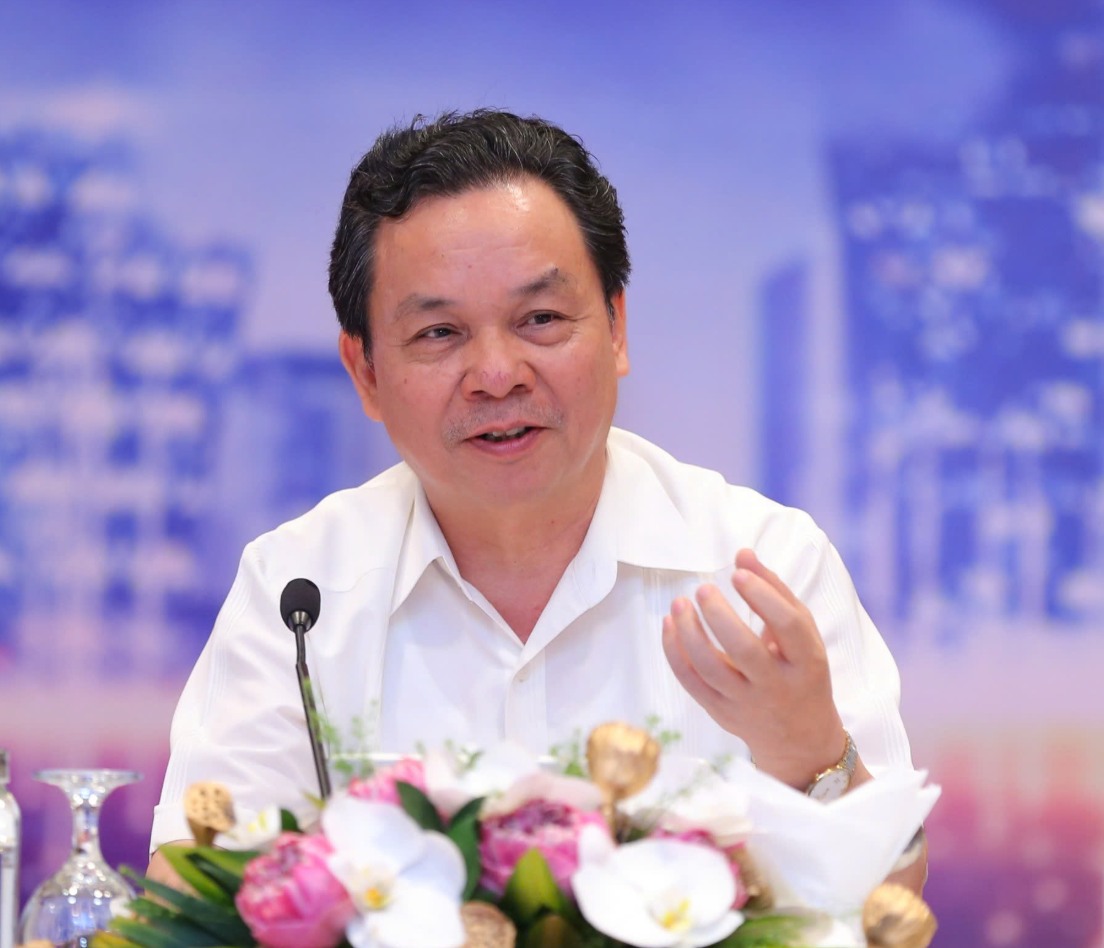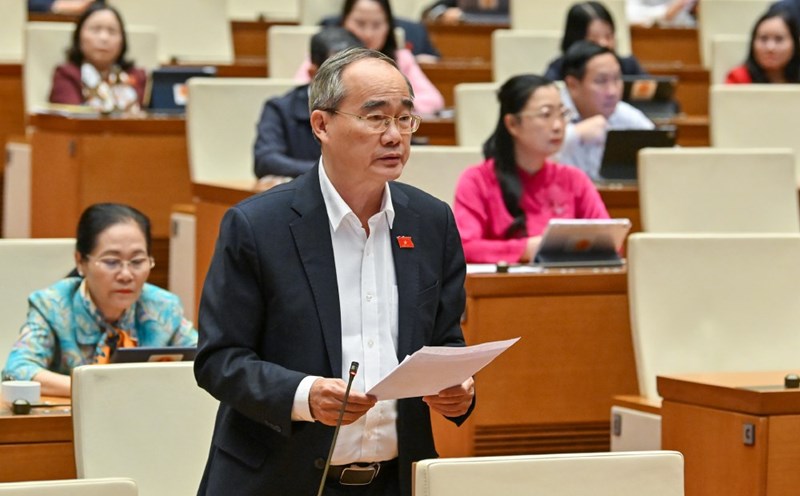At the discussion session on the socio-economic situation on October 30, National Assembly delegate Nguyen Thien Nhan (HCMC delegation) proposed raising the retirement age to 65, with the expectation of having 5 million more workers to serve the double-digit economic growth target.
Along with that, he also recommended that there should be a solution to increase the birth rate from 1.91 to 2.1 before 2035 to ensure a long-term balance of population and human resources.
This proposal immediately attracted public attention, because this is an issue not only related to the labor structure and economic productivity, but also directly affects social security, job quality and public health in the context of Vietnam entering a period of rapid population aging.
Regarding this issue, on the side of the National Assembly's hallway, Lao Dong Newspaper reporters recorded many more opinions from National Assembly deputies, revolving around assessing the necessity, timing of implementation and flexible solutions to both effectively utilize the resources of older workers and ensure job opportunities for the younger generation.
Prof. Dr. Hoang Van Cuong (Hanoi National Assembly Delegation, Member of the Prime Minister's Policy Advisory Council, Member of the National Assembly's Economic and Financial Committee: "It is necessary to consider increasing the retirement age in a flexible manner"

I think it is necessary to consider increasing the retirement age in a flexible manner, in order to take advantage of about 5 million more experienced workers, but this must be done on a voluntary basis, not mandatory.
Currently, the average life expectancy of people is increasing, while health care and living conditions have also improved significantly. Therefore, the working capacity of the elderly tends to last longer than before.
In fact, in many countries with an aging population and scarce young labor resources, the government has allowed workers to continue working for longer, even until the age of 70. This group of workers is called the " silvery economy", that is, the group of people with silver hair are still actively participating in economic activities, both creating value and meeting the needs of the elderly.
Many people at this age can truly promote their experience, skills and can make great contributions to society. However, it is also necessary to clearly recognize that some occupations require high labor intensity, health requirements, quick reflection, and high accuracy - these jobs are not suitable for the elderly.
Therefore, extending working age needs to be applied flexibly, depending on each labor group, avoiding rigid or imposing regulations.
In Vietnam, the young workforce is still quite abundant, not to the point of scarcity to have to increase the retirement age en masse. The current Labor Law has also adjusted the roadmap to gradually increase the retirement age to 62 years old for men and 60 years old for women, this is a significant change.
Therefore, in my opinion, this is not the right time to continue to increase the retirement age simultaneously. What is necessary now is to build flexible models, creating conditions for those who are capable and eager to continue working and contributing through activities in the "silver economy".
This approach will help effectively utilize large resources from the elderly, while not affecting the employment opportunities of young workers and not putting pressure on the labor market.
National Assembly delegate Truong Xuan Cu (Hanoi National Assembly delegation, Vice President of the Central Committee of the Vietnam Association of the Elderly): "At least 5 more years should be studied to increase the retirement age"

In my opinion, increasing the retirement age cannot be done immediately, but there needs to be a clear time and roadmap. Currently, we are only in the process of gradually raising the retirement age to 62 for men, and this goal is expected to be completed by 2028. Thus, it is at least 5 years since the completion of the current roadmap that we should continue to study further adjustments.
There are very few countries in the world that currently have a retirement age of 65. Vietnam is in the process of moving towards an aging population, but it is expected that around 2030 it will enter the aging population stage. Therefore, it is too early to continue raising the retirement age at this time, there is not enough scientific and practical basis to decide.
At the same time, it is necessary to consider the characteristics of labor and the health of Vietnamese people. If the retirement age is raised to 65, it is necessary to carefully assess whether employees meet the requirements on health, productivity and working conditions.
In the future, it is possible to study and apply the retirement age increase to some specific groups of professions such as professors, doctors, scientists, people working in the field of research, teaching or high expertise, not requiring much strength. However, this also needs to be tested, summarized and evaluated in practice before being widely applied.
National Assembly delegate Trinh Tu Anh (National Assembly delegation of Lam Dong province: "The proposal to increase the retirement age to 65 is only suitable for high-level professional groups such as professors, doctors, engineers"

Regarding the proposal to extend the retirement age to 65 years old, I agree that this is a necessary solution to deal with the aging population and shortage of high-quality labor in Vietnam, especially in the context of a declining young workforce due to low birth rate and low quality of human resources.
However, I think this proposal is only really suitable for groups of workers with high professional qualifications such as professors, doctors, engineers - those who are in good health and have less physical labor.
According to statistics from the World Health Organization (WHO), the average life expectancy of Vietnamese people is currently 73.64 years old, but the healthy living age is only 65.4 years old (of which men are 62.8 years old and women are 68 years old). More than 70% of people over 60 years old have at least 3 chronic diseases.
For the unskilled labor group such as factory workers, extending the retirement age to 65 may not be feasible, leading to productivity decline, increased risk of work accidents and health burden.
In addition, in the context of strong development of science and technology, innovation and digital transformation, young workers are able to adapt faster to new technical requirements.
Therefore, I propose that there should be a clear classification roadmap: Applying the retirement age of 65 for intellectual and office workers; As for unskilled workers, continue to follow the current roadmap (men 62 years old in 2028, women 60 years old in 2035).
At the same time, it is necessary to combine with vocational training programs, periodic medical support and appropriate incentive policies to ensure fairness and efficiency in implementation.












